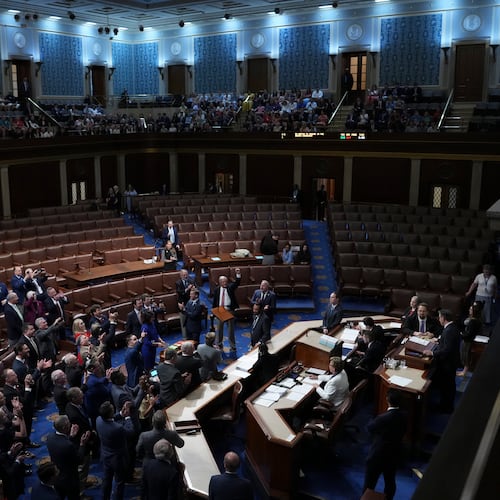President Barack Obama has a deal with Iran. That sentence was bound to be written, because no serious person can believe Obama was willing to walk away from the table.
So there was going to be a deal. The question was whether it would be a relatively good deal or a relatively bad deal. Your answer to that question likely depends on whether you believe the nature of the Iranian regime is likely to change in the next decade.
Key to this deal is a series of expiration dates. First comes the expiration of the asset freeze that has kept some $100 billion (more than a quarter of the county’s GDP) out of Tehran’s hands. Then comes the the expiration of a United Nations ban on arms sales involving Iran, in no more than five years. After that, the expiration within eight years of a U.N. ban on ballistic-missile sales to Iran. Finally, the deal lasts only 10 years, followed by a five-year wind-down.
Do you believe the Iranian regime — which continues to sponsor terror against its sworn enemy Israel, and to back Syrian dictator Bashar al-Assad in the murder of his own people, among other examples of regional adventurism — will greet an infusion of money and lowered limits on its arms dealings by mellowing out in its middle age?
Obama spoke Tuesday of a deal “not built on trust, (but) on verification.” But the deal gives Iran the ability to put off inspectors for a few weeks, time to tidy up before they arrive.
The inspections — the stick to go along with the carrots — are premised on the idea of a “snap back” of sanctions should they reveal wrongdoing by Iran. But these sanctions had only become effective after they had been ramped up over about as much time as this deal will last. And even in the unlikely event Russia (and China) would assent to reinstating sanctions, Iran will already have its money. Trust in Iran is at the very heart of this deal.
One constant in Obama’s foreign policy has been his misreading of the people with whom he has dealt. The “reset” with Russia only emboldened Vladimir Putin. The intervention in Libya yielded a more dangerous country overrun by terrorists. The chemical weapons “red line” in Syria was (and remains) ignored by Assad. The “JV team” known as ISIS seriously threatens Iraq.
Our only unswerving ally in the Middle East, Israel, is viewed with contempt by the administration and has come to return the favor. Cuba is getting the benefits of normalized relations with the U.S. while the regime’s political enemies languish in its prisons. Even Jimmy Carter deems the Obama presidency as one in which America has lost standing in the world.
Now we are to believe Iran will uphold its end of this bargain, because of shaky verification measures to be implemented after the farm has already been given away. We’ll get right on that verification, just as soon as we secure federal personnel records from foreign hackers.
In light of all this, maybe Obama’s supporters are right, and this was as good a deal as Obama could negotiate. More’s the pity, then, that you go to the negotiating table with the president you have, not the president you might wish to have.
About the Author
Keep Reading
The Latest
Featured


